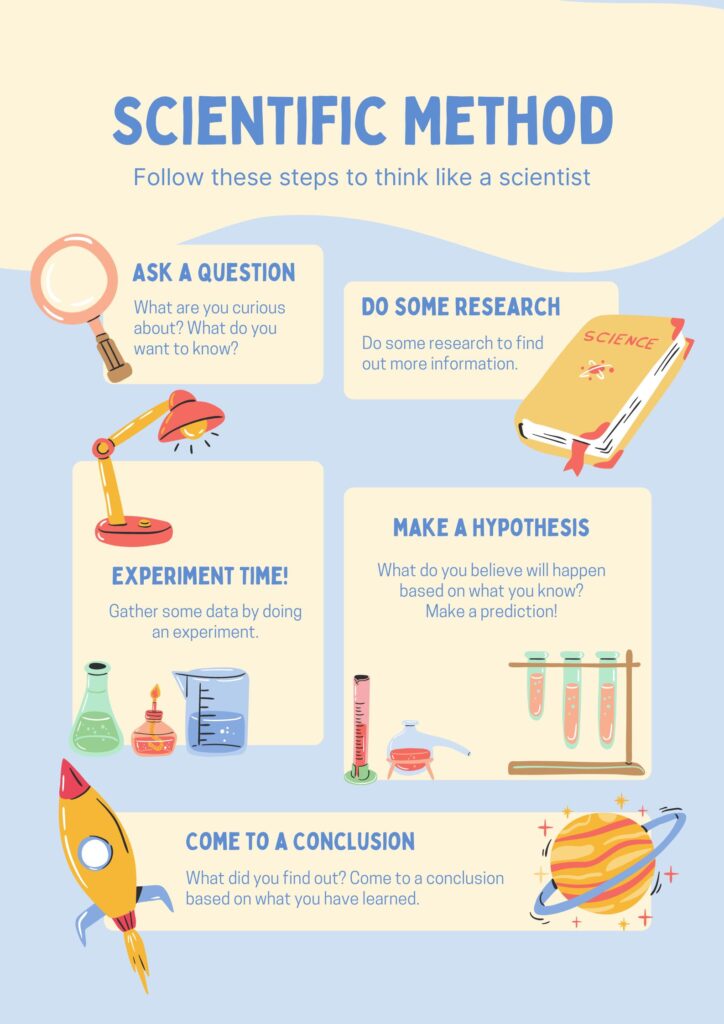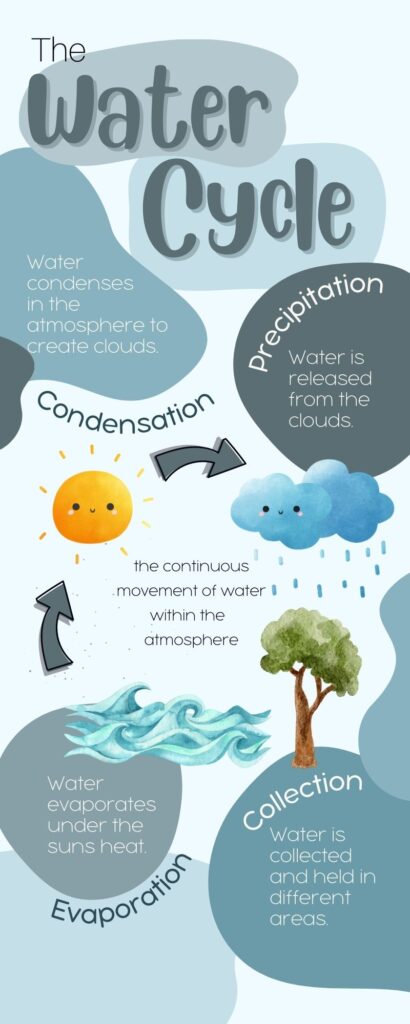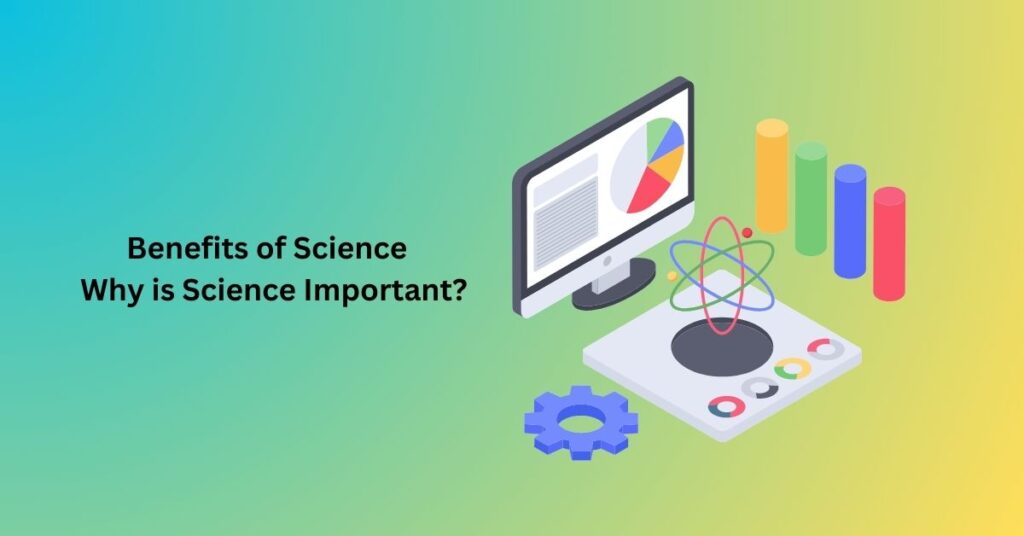Science is the knowledge that is based on theories, findings, and experiments. The benefits of science include problem-solving, improved decision-making, progress, and development.
Science is an approach to getting knowledge about the universe and creating fresh concepts that shed light on our surroundings. Though those theories are naturally speculative as they go through the scientific process repeatedly and are put to various tests, we grow more confident in them.
Science provides answers to problems in daily life and helps in our search to solve the universe’s greatest mysteries. So, science is one of the most significant sources of knowledge.
It performs several tasks for the betterment of our society, including developing new knowledge, enhancing education, and raising the standard of living for people.
Why is Science Important?
The importance of science is that it helps us live longer and healthier lives, keeps track of our health, delivers medicine to treat diseases, and eases aches and pains.
It also helps in the provision of water for our basic needs, including our food, gives us energy, and makes life more enjoyable through sports, music, entertainment, and innovative communication technology.
- Science enhances our critical thinking.
- Science develops problem-solving skills.
- We create new technologies with the help of science.
- Science helps us live longer.
- Science provides us with cleaner water to drink.
- Science lowers infant mortality.
- Science provides information on climate change.
- Science can help in emergency response and preparation.
- Science enables us to investigate possibilities for life on other planets.
- Science provides historical information.
How Does Science Benefit Society?
Science has a significant impact on every aspect of our lives and is rapidly changing the world. However, not everyone knows that science involves much more than just inventions, new technologies, and medications.
1. Improved Lifestyle
Technologies like cell phones, computers, the internet, and other means of communication, television, automobiles, buses, and similar items are additional advantages of science in daily life. None of these are possible without the discovery of electricity by scientists.
Alessandro Volta, an Italian physicist, is acknowledged for discovering the existence of electricity in 1800. This discovery marked the beginning of an exciting period in the history of electric discoveries.
2. Exploration of the World
Many people believe that science is an impersonal field that only involves formulas and numbers. However, it can also promote admiration and happiness. It assists us in appreciating the natural beauty of our planet by assisting us in understanding the surrounding environment.
For example, we can understand it converted hope sunlight into food with the help of photosynthesis. This simple chemical reaction supported all life on Earth, and only through scientific research we can understand how it functions.
if we have a better understanding of the enormous scope of the universe, we will better understand our existence on this tiny blue planet.
3. Medicine, Food, and Agriculture
Basically, science was used to discover or develop all the modern medications we currently have. One of the first was Penicillin, which was founded in 1928 by Sir Alexander Fleming while he was conducting experiments in his London laboratory.
Ancient people used a scientific method of “Trial and Error” while earning cooking and preparing food. Modern science has helped us to better understand how cooking processes like the Maillard reaction affect food.
Maillard reaction is an organic chemical process, that involves reducing sugars and amino acids combine to create a complex combination of compounds. The flavor and aroma that distinguishes browned food result from this reaction.
Ancient human beings also used a developing scientific method to discover the best agricultural practices.
Science has shown us that various practices, such as crop rotation, increased crop diversity, cultivation of cover crops, minimal tillage, incorporated pest management, and others, are very effective.

Benefits of Science
The advantages of science include Discovery and Knowledge, Problem-Solving, Health benefits, Disaster Management, Transportation, and more. Let’s dive into the detail.
1. Discovery and Knowledge
Science grows our knowledge of life. Without it, there is no way we could have as much knowledge of the world as we do. Scientists from every field of life examine a variety of topics every single day.
It analyzes the mysteries of life and poses the questions “Why?,” “What?,” and “How?” Insight and objectivity are the primary values in science. It uses what we already believe to be true and tries to support it.
In short, science seeks to bring us closer to reality. The pursuit of knowledge through science advances our ability to discover solutions to even the most difficult problems.
2. Problem-Solving
There are many problems all over the world and science addresses them straight away by finding solutions. Look at how far our civilization has reached. Almost every advancement we have made, no matter how big or small, is an outcome of scientific problem-solving.
Consider some innovations that have changed lives, such as smartphones, light bulbs, airplanes, and vaccinations.
Without experiments, testing, curiosity, and rethinking beliefs, not one of these would have been possible. Science is an ambassador of advancement and problem-solving is extremely important for this advancement.
3. Agricultural Benefits
Including seeding, harvesting, fertilizer application, irrigation, etc., improved machines have made farming simpler and more efficient.
Now, crop yield and quality can be increased using breeding techniques and plant selection, and crop production can be increased by using better varieties of seeds. HYV seeds help more production of wheat. Tractors, Cotton gin, FarmBot, Seed drill, etc are the innovations.
4. Health Care Benefits
Because of new discoveries in the medical field, there are now significantly fewer infections and fatal diseases than ever before.
Technology allows us to access these therapies through large devices and methods like operating systems, ECG, X-rays, MRI machines, pacemakers, etc. That’s why, in today’s world, science helps us deal with illnesses in a better way.
5. Transportation
Science has developed and invented different modes of transportation, such as trains, automobiles, boats, and aircraft, and are extremely practical for us in our daily lives. Because of advances in science and technology, the transportation sector has experienced tremendous growth.
6. Disaster Management
Humans increased understanding of natural laws has made the development of tools and systems to protect societies from catastrophes like floods, tsunamis, earthquakes, and volcanic eruptions possible because of scientific advancement.
These developments have shielded millions of people, lowering the possibility of fatalities from natural disasters. Scientific understanding has also contributed to the development of cooling and heating systems, which has allowed people to adapt more effectively to climate change.

7. Increased Life Span
It is not possible to ignore the link between scientific advancements and a boost in the average lifespan. Life expectancy was between 30 and 40 years on average from the 1500s to the 1800s.
While in 2019, there was an 80-year-old life expectancy on average. There are many reasons for this rise, including better nutrition and healthcare, but all of them are connected to science.
Because we had limited knowledge of infections and access to healthcare in earlier times, humans were extremely vulnerable to disease.
8. Benefits for Young Students
Young students develop a variety of skills that they will need in the future. Science supports A lot of these skills including effective communication, divine focus, and efficient organization.
According to studies, students typically first show an interest in STEM subjects when they are in elementary school. By encouraging their interests, we can help kids develop their confidence in science. Later on, this can cause more opportunities for them.
9. Lower Children Mortality
Humans are still extremely vulnerable despite how vulnerable we once were. Poverty and illness are just two of the many factors that can prevent a child from growing up.
The WHO estimated that over 5 million children under the age of five died in 2019 from mostly treatable and preventable conditions.
Just because of science, professionals can identify the root causes (such as malnutrition and waterborne illness) and take action to improve the situation. Science helps medical professionals in understanding pediatric cancer and other dangers to children’s lives.
10. Innovations in Technology
There are many directions that science is heading in today, including self-driving cars, light-controlled brains, prosthetic limbs folded like origami, nano-sized cancer zappers, Martian rovers, and quantum computing as well.
These and a lot of other useful innovations have completely changed our lives and made them extremely easier than before.
We need to study science if we want to benefit from all that it offers. We require qualified individuals to conduct the experiments in the labs. We need problem-solvers, mathematicians, and team players that can create new technologies through creativity and innovation.
In the next few decades, you cannot imagine life without the new technology that a scientist is currently developing in a lab as you are reading this article. Which one will it be? Are you even able to imagine it? One thing is certain: it will be extremely beneficial to humanity.
Disadvantages of Science
Just like everything, science also has some drawbacks which are listed below:
- Nature suffers because of science and development, which also causes deforestation and the overuse of natural resources.
- People use technology for illegal activities.
- Their over-dependence impacted people’s physical health on technology.
- We rely on that way too much. When technology malfunctions, we are powerless.
- It ruins our simple, healthy way of life.
- Machines will replace humans in a variety of tasks; this would lead to the elimination of employment.
- The world of social media simplifies many aspects of daily life, but it also often results in addiction among users.
- There is a misuse of some discoveries. For example, nuclear energy is used to create atomic bombs.
- According to some scientists, the use of artificial intelligence could have adverse impacts on people because machines might become uncontrollable.
- The excessive use of chemical fertilizers can lower soil quality and affect food quality.
FAQs
Name at least two benefits of using models in science.
Models are helpful tools in science education that can be used to:
- Illustrate abstract ideas.
- Make predictions.
What are the benefits of learning science in early childhood?
- Science can spark the natural curiosity of young children.
- Science promotes A growth mindset.
- Reading, writing, and it authentically taught math skills through science.
- Science produces enthusiastic learners.
Is science important?
Science is a way to help the brain develop to discover new knowledge and to help us calm our curiosity about how the world develops and functions in the modern era. Science is extremely important because it helped in creating the world in which we live now.
Why is environmental science important?
The knowledge, abilities, and analytical tools required to address environmental challenges at the global level are provided by environmental science studies.
It helps in setting a standard for a secure, hygienic, and stable natural ecosystem. It also addresses significant issues like access to clean and safe drinking water, sanitary living conditions, clean air, fertile land, nutritious food, and development.
Why is forensic science important?
Forensic science plays an important role in the criminal justice system. It tasked forensic scientists with reviewing evidence collected from crime scenes to produce unbiased conclusions that can be presented in court.

